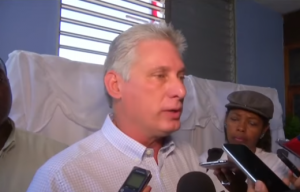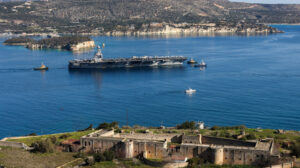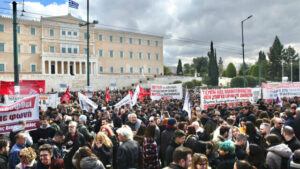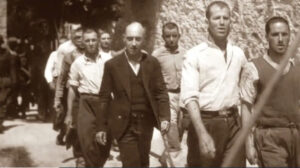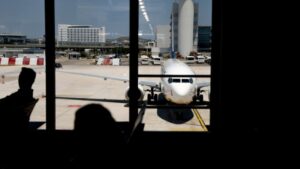Cuban First Vice President Miguel Diaz-Canel was elected to the Cuban presidency on Thursday, bringing an end to the Castro brothers’ nearly 60-year-rule over the tiny Caribbean island.
As the country turns the page on this historic chapter, few Cubans seem bothered by the change. In a single-party system committed to maintaining stability, the line of succession has been carefully managed. For months rumours had swirled that Diaz-Canel would be next to lead.
Diaz-Canel – who turns 58 on April 20, the day after his appointment as president – is a close friend of President Raul Castro, who replaced his brother Fidel in 2008. He was photographed standing beside the family at Fidel Castro’s funeral in December 2016. “Comrade Diaz-Canel isn’t an upstart or an improvisation,” Raul Castro said in 2013, after naming him vice president.
Yet it remains to be seen whether Diaz-Canel’s ascent to power “will mark a change” in Cuban politics, according to Janette Habel, a researcher with the Institute of Higher Studies on Latin America (IHEAL) in Paris.
“Miguel Diaz-Canel is the incarnation of a generation that no longer belongs to that of the revolution in 1959,” Habel told FRANCE 24. If elected, it will be the first time in the island’s history since the end of the Cuban revolution that its leader will neither bear the name Castro, nor wear a military uniform.
“His background as an intellectual and technocrat contrasts with that of the self-taught combatants of the previous generation,” Habel said.
A certified electrical engineer and the former minister of higher education (from 2009 to 2012), Diaz-Canel is a longstanding member of Cuba’s Communist Party, which he joined in 1997. He has steadily risen through the ranks over the past two decades, governing the central Villa Clara Province and then the eastern city of Holguin, before being nominated to the role of vice president of the council of ministers in 2012. At the time, many in Cuba saw him as a down-to-earth man, who traveled by bike to stay connected to the people.
Power-sharing
But the new president, who has often been compared to American actor Richard Gere because of his height and silver hair, is unlikely to follow in the Castros’ footsteps. To begin with, his power will be contained to the presidency, with Raul Castro expected to stay on as First Secretary of the Communist Party until 2021.
“Although the two positions have been held by the same person for the past half-century, it will now be shared for the first time and limited to two five-year terms,” Habel explained. “It’s a way for the party to keep control over the island’s evolution while maintaining stability.”
This means that Diaz-Canel will play a largely ceremonial role, one he has already performed for the last several years. He has been received by Russian President Vladimir Putin at the Kremlin and North Korean leader Kim Jong-Un in Pyongyang. He also traveled to Paris in 2015 to attend the United Nations Climate Change Conference, in which Cuba played a crucial role behind the scenes.
“There is nothing to indicate that he’ll deviate from the party line on domestic policy,” Habel said.
Instead of shaking up the system, it is widely expected Diaz-Canel will continue Raul Castro’s planned economic reforms, such as ending the country’s dual currency system (which uses the Cuban peso and the convertible peso, called “dollar” locally). He’s also expected to reduce pay gaps in the country.
“Miguel Diaz-Canel is going to govern public affairs under the control of the party and the armed forces, which play an important role on the economic front,” Habel explained.
Digital defender
Some commentators have described Diaz-Canel as uninteresting and dull. One of his biggest challenges will be distinguishing himself from his predecessors, which he has sought to do by declaring his support for modernizing Cuba.
“Today, with the development of social media… and the Internet, it’s almost delusional to try to prohibit it, it doesn’t make any sense,” Diaz-Canel, who can often be seen with a tablet under his arm, has said of online censorship in Cuba.
In addition to advocating for greater Internet access, Diaz-Canel has a public Facebook account – a rarity among Cuban politicians. In 2013, he also defended press freedom after vocalizing his support for the blog La Joven Cuba, which was censored by the government the previous year.
But his stance on modernization is relative. He took a more hardline approach during a speech before party officials in August 2017, condemning political dissidents and criticising independent media, while also lashing out at the United States.
“It is proof that he’s moving forward with caution, given the different positions in his party,” said Habel, adding that the next five years – or at least until Raul Castro in no longer party leader – will be a “balancing act” for Diaz-Canel.
Source: france24
Ask me anything
Explore related questions
